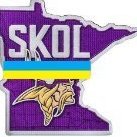Usa Notarials Overseas
-
Recently Browsing 0 members
- No registered users viewing this page.
-
Topics
-
-
Popular Contributors
-
-
Latest posts...
-
7,276
-
31
Why long-term expats in Thailand say insurance is worth every baht
Stupid comparison. -
33
Has anyone been charged a service fee for a low account balance by a Thai bank?
Not total assets but money in 1 bank account. -
55
Trump fires person in charge of jobs report
And you know too much about invites to the garden. Oh, and that clover patch! It stays in Issan. Every one sing along. -
4
UK Manchester Airport Mayhem: Brothers Face Retrial Drama
The Crown Prosecution Service were very reluctant to prosecute these two individuals, it took the threat of a private case from the Reform Party for the authorities to take action,otherwise they’d have got off Scot free. As you correctly state it’s a two tier legal system now in the UK -
7,276
-
-
Popular in The Pub









Recommended Posts
Create an account or sign in to comment
You need to be a member in order to leave a comment
Create an account
Sign up for a new account in our community. It's easy!
Register a new accountSign in
Already have an account? Sign in here.
Sign In Now